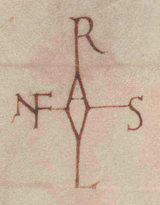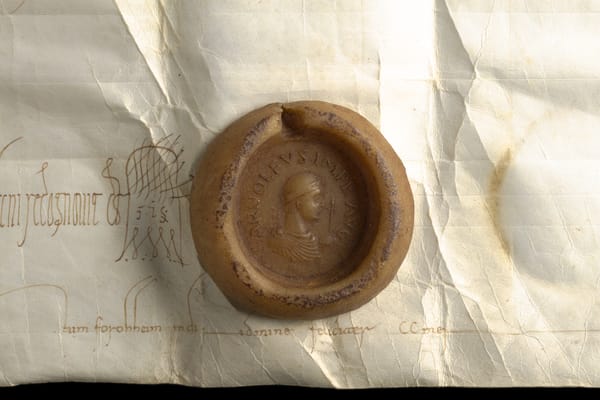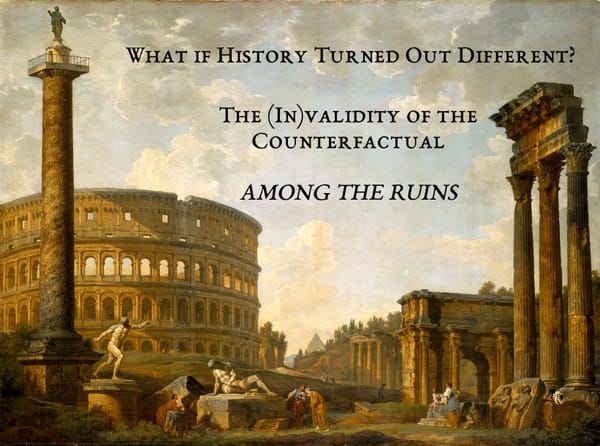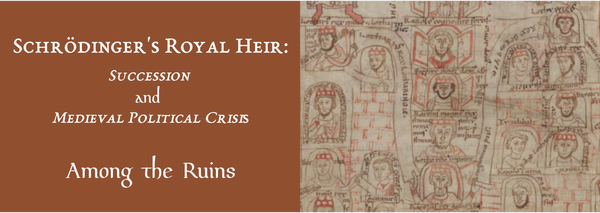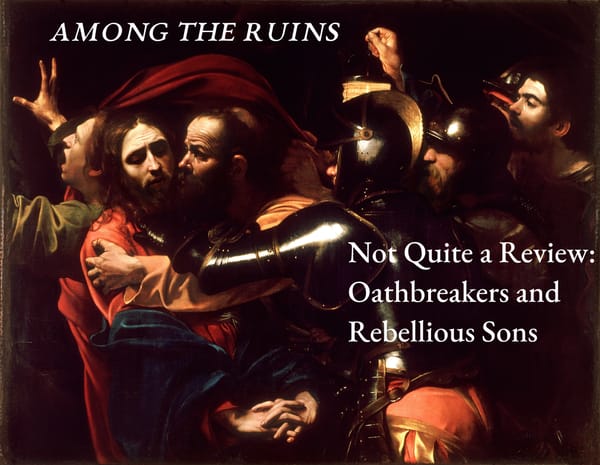How To Write About Medieval Kings: An Overview
There are many biographies of medieval kings, but that does not mean all are the same.

Want the audio version of this post? Scroll to the bottom and subscribe (as either a free or paid member) to access the audio.
There are many biographies of medieval kings, but that does not mean all are the same. Historians differ in their methods, interests, and approaches to studying kings. I finally, many years overdue, was able to read Janet Nelson's King and Emperor: a New Life of Charlemagne. Having written my own dissertation on a single king, I wanted to talk about how the study of rulers has changed over the years and some thoughts on how to write about a king. What I am restricting myself to is specifically works that focus on one ruler, not broader discussions of politics, society, etc.
One of the criticism's leveled at the genre is that it concentrates too much on "Great Men" and diminishes the role of women and lower orders of society. This is true to some extent, but kings mattered quite a bit in the Middle Ages, for reasons I hope to lay out in another post. Generally what comments I've seen boil down to "we already know enough about X king (or kings in general), that book could instead be written about Y instead." Despite this very quickly moving into the "review the book the person wrote, not the one you wish they wrote" realm of criticism, I am deeply skeptical that there is a topic where we really have seen the final word. When it comes to kings, society, or any topic, there are many ways to write about the same story. At the same time, and an obvious point, you can read books about kings and whatever else you want, no one is stopping you! In fact, you can choose not to read anything about kings, but I think that will leave you with a pretty skewed view of the Middle Ages in the same way that ignoring monasticism would. It is not a zero-sum competition for good scholarship, because there are lots of great historians out there, who should be paid money so they can keep doing research.
Yet even within the genre there has been a change in how historians talk about kings. Modern studies of kings tend to focus substantially more on practice. That is, how did the king rule in a very literal, mechanical, sense. Earlier historians were often interested in "development" or institutions. We can look at works by William Chester Jordan, Joseph Strayer, and John Baldwin for examples from the late 1970s and 1980s of this trend.[1] Jordan, Strayer, and Baldwin were all interested in questions of royal authority and power, but in ways often centered on institutions. For instance the development of royal financial instruments, courts, or otherwise "bureaucratic" seeming institutions.
Now, there were good reasons for this: even earlier historians dinged medieval rulers for being unsophisticated, barbaric, etc., so this was a reaction by historians to correct this by investigating the sophistication of medieval rulers. Indeed the emphasis on institutions was a way of grounding the analysis in more mundane events. For Strayer this was key because it was the "minor problems that take up the largest part of the time of any political leader."[2] This emphasis on the mundane remains an important part of discussions of kings, but now less seen through the lens of bureaucratic developments.
Since the 1980s, and even more so since 2000, we have radically revised our understandings of early medieval politics (which I know best so that is what I'm gonna reference).[3] Many works now emphasize the importance of consensus for medieval rulers, that kings did not operate as all-powerful despots.[4] As such modern works tend less to inquire about the relationship between king and church or king and elite in a zero-sum way than they wonder about the ways medieval kings operated within this consensus-based politics.[5] Carolingian historians have also dismantled many of the underlying assumptions of decline that characterized descriptions of the period.[6] Indeed there is now greater emphasis on the court ideologies and sophistication of the Carolingians that came after the "heyday" of the empire under Charlemagne.
One of these works is Simon MacLean's Kingship and Politics in the Late Ninth Century, about Arnulf's uncle Charles the Fat. Kingship and Politics was so fascinating to me that it was part of what prompted me to become a Carolingian historian. In short, and I would recommend giving it a read, MacLean is arguing that late-Carolingian politics was not exclusively defined by collapse. Charles the Fat gets a lot of bad press, but the reality was a lot more nuanced and there was quite a bit of innovation during his reign. Further, Charles was not a "weak" king and MacLean lays out some of the problems of using that framework to evaluate a ruler. There is also a great introduction which lays out how this theme of weakness and broader impressions of the period fit into national identities of the 19th century.
MacLean adopts a loosely chronological framework to parts of the book but really the organization is thematic. Jennifer Davis, my doctoral advisor, wrote a book on Charlemagne that focused on his political practice.[7] Rosamond McKitterick's book about Charlemagne also utilizes a more thematic focus.[8] This is not the only way to write a study of a king, however. Some historians prioritize chronology. King and Emperor privileges the chronological approach.
Nelson presents us with poetry, histories, coinage, letters, etc. in way that other historians can only dream of for other rulers. Indeed this is one of Janet Nelson's big goals throughout her book, to trace moments where she thinks we can uncover something close to "Charlemagne's voice." What we get in her work is a complicated picture of Charlemagne as father, ruler, and person. Nelson also wants to bring in the women around Charlemagne, both his wives and daughters, as key parts of the narrative. This is not terribly surprising given Nelson's interest in gender at the Carolingian court, but is a largely unique perspective in the larger body of works about kings. Personally, I think this is one of the most compelling elements of the book.
There are numerous biographies of Charlemagne in particular, in part because the sources are more well-tilled and numerous than for other kings. Of course, we run into problems with our sources. Jacques Le Goff wrote in his biography of Saint Louis that "To search for the individual Saint Louis without any complete concept of the individual would be an illusion. The only Saint Louis that we can know would be either the Church's model of the saint king at the end of the thirteenth century or the model of the king according to the Mendicants, Saint-Denis, or a pious knight."[9] Le Goff's point was that when writing about the past we are by necessity viewing it through the lens of our sources. In Saint Louis' case, as Le Goff presents it, this meant that man and model were somewhat inseparable. On some level, sure, historians are constantly reading between the lines to uncover what we want to know. Yet we need not take such a maximalist reading of our sources that there is no hint of personality left. For Arnulf there are no letters written in his name, one letter written to him, and few sources that explicitly note their context as his court. Unlike Nelson's approach, I cannot realistically access much about Arnulf's "personality" because there is just not much to go on. In my own work, then, I use chronology in a much different way.
That way is heavily inspired by Eric Goldberg's influential work on Louis the German, Struggle for Empire. Importantly, Louis the German, and East Francia, were often seen as the poorer and less sophisticated brother to the West Frankish kingdom. Goldberg's book proceeds chronologically with a few thematic chapters and focuses on how Louis took what was a more peripheral area of the Carolingian empire under Charlemagne and Louis the Pious and developed it into a more coherent polity. Goldberg's book was a big inspiration to me not just because of its readability but also how he approaches topics chronologically but then has two thematic chapters to help consolidate his arguments. In my own dissertation I largely follow this model, relying on a chronological focus to help trace Arnulf's actions but with more thematic sections to help clarify broader points.
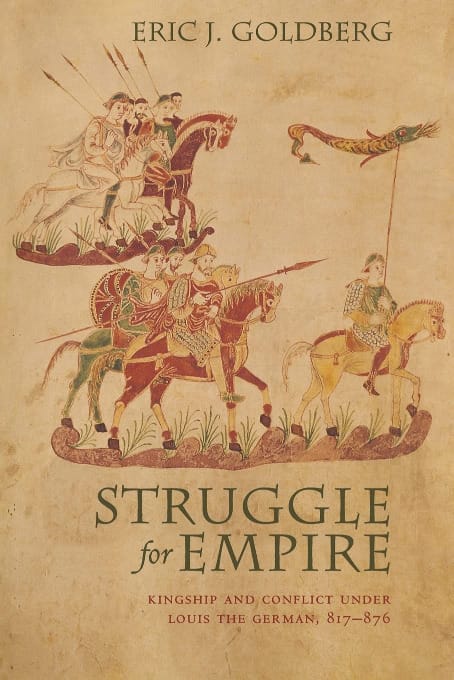
One of the challenges with a chronological approach is successfully indicating to the reader what changed over the period and not just presenting a narrative of events. It is easy to be mislead by patterns in the sources when they are aggregated. For instance I work with charters a lot, which reveal information about who has access to the king, the king's location, etc. Overall, some people stand out as more frequently attested in the charters, suggesting they have a heightened status. Yet when digging a bit deeper some of them appear only after certain events (Arnulf's coronation and illness) or in very localized moments in time. This means it would be somewhat wrong to say they were "influential at court" throughout his reign. Instead we can more correctly identify that there were winners and losers over time, and the implications of those shifts. Adopting a chronological lens helps us tease out those changes.
Getting back to Nelson, and the chronological mode, another thing it is really helpful for is showing choices. Not related to kings but one of the most influential books I read was Christopher Clark's The Sleepwalkers: How Europe Went to War in 1914 which really looks at the choices available to historical actors and places them into context. Nelson spends a fair bit of effort trying to understand what a choice meant in a given context, with the various competing personalities involved. In larger thematic treatments this style of analysis can be difficult because one is working in a different way. Chronology helps clarify the many decisions that make up medieval rulership. These decisions can range from highly dramatic, kingdom-shaking events, to more limited ones dealing with artisans at the royal court. Sometimes these decisions are part of longer term plans or challenges, while other times they come seemingly out of nowhere as a response to a crisis. Writing chronologically helps to clarify that medieval rulers, just as modern politicians, make choices within specific moments in time, often with limited information. Nelson successfully uses this, I think, in her discussions of Charlemagne's family, and how the growth, and death, of some of his sons influenced his decisions. Similarly I argue that one key to understanding Arnulf's actions late in his reign are a response to his illness and his desire to lay out a type of succession plan for his three children.
This is not to say that writing chronologically is "better" than thematically, just that in evaluating scholarship it is better to ask what choices were made and why. In writing about Arnulf I not only wanted to set his actions in specific moments against a broader Carolingian background, but also to give an updated account of his reign, especially for those reading in English. Besides the Wikipedia article, there is not really any English material on Arnulf. Regardless, whether thematic or chronological, it is impossible to cover everything. Indeed there are plenty of works I've left out of this brief overview! Luckily, that just means more material for historians to argue about. So make sure to subscribe so you can keep the wheels of Big History™ turning!
Thanks for reading Among the Ruins! If you haven’t subscribed, please do so below and you can do your part in defeating the algorithm!
You can also choose to support me directly with a small donation at the button below:
- W. Jordan, Louis IX and the Challenge of the Crusade: a Study in Rulership; J. Strayer, The Reign of Philip the Fair; J. Baldwin, The Government of Philip Augustus: Foundations of French Royal Power in the Middle Ages
- Strayer, The Reign of Philip the Fair, p. 5.
- There are tons of books and articles that could be listed here, some key things not mentioned already: S. Patzold, Episcopus: Wissen über Bischöfe im Frankenreich des späten 8. bis frühen 10. Jahrhunderts; G. Koziol, The Politics of Memory; S. Gilsdorf, The Favor of Friends; S. Airlie, Making and Unmaking
- A key work here is M. Innes, State and Society. More recently C. West, Reframing the Feudal Revolution
- H. Lößlein, Royal Power in the Late Carolingian Age: Charles III the Simple and His Predecessors
- For instance M. De Jong, The Penitential State and C. Booker, Past Convictions
- J. Davis, Charlemagne's Practice of Empire
- R. McKitterick, Charlemagne: the Formation of a European Identity
- J. Le Goff, Saint Louis, trans. G. E. Gollard (Notre Dame, 2009), p. 406.

